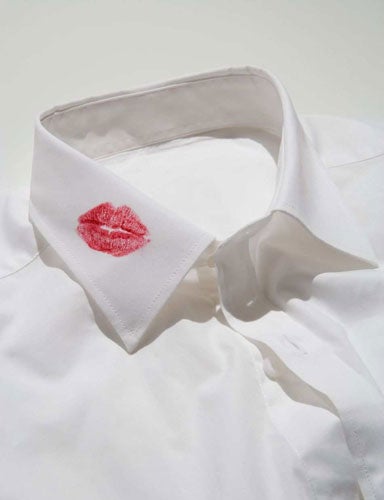Men 'better than women at detecting infidelity'

Men are better at detecting infidelity than women but tend to suspect their female partners even when they are faithful, a study has found.
Scientists interviewed 203 heterosexual couples about their infidelities in confidential questionnaires and found that although men were more likely to have cheated on their wives or girlfriends, with 29 per cent admitting to at least one affair compared to 18.5 per cent of the women, they were also more likely to detect infidelity.
Women made correct inferences about their partner's infidelity about 80 per cent of the time but men scored significantly better – they were right about 94 per cent of the time, according to Paul Andrews of Virginia Commonwealth University in Richmond.
"We wanted to know if men or women were more accurate in detecting sexual infidelity," Dr Andrews said. "We found that, if everyone was being truthful in their answers, it was the men who were more accurate. But we also found that men tended to suspect infidelity when there wasn't any.
"We also developed a statistical method for estimating the amount of under-reporting of infidelity. We found that men tended to be honest about their affairs whereas women tended to under-report infidelities by about 10 per cent.
"Women are probably more reticent in disclosing information. They appear to be so much better at concealing their infidelity whereas men are better at detecting infidelity, based on this evidence," Dr Andrews added.
The research, published in the journal Human Nature, lends support to the idea that men are honed by evolution to be wary of infidelity in their female partners because they can never be sure whether the children they are supporting are their own or whether they have been cuckolded.
The findings from the study need to be supported by further research but they suggest there is an evolutionary "arms race" between the sexes, with men trying to get better at detecting sexual infidelity in women and women becoming more skilled at concealing it, said Dr Andrews. "We found evidence suggesting men may be more motivated to seek out information that resolves suspicions about the sexual fidelity of their partners, and this may contribute to their greater accuracy."
David Buss of the University of Texas, Austin, said: "This [study] adds to the evidence that men have evolved defences to detect infidelity. [It demonstrates] a fascinating cognitive bias that leads men to err on the side of caution by overstating a partner's infidelity."
Join our commenting forum
Join thought-provoking conversations, follow other Independent readers and see their replies
0Comments